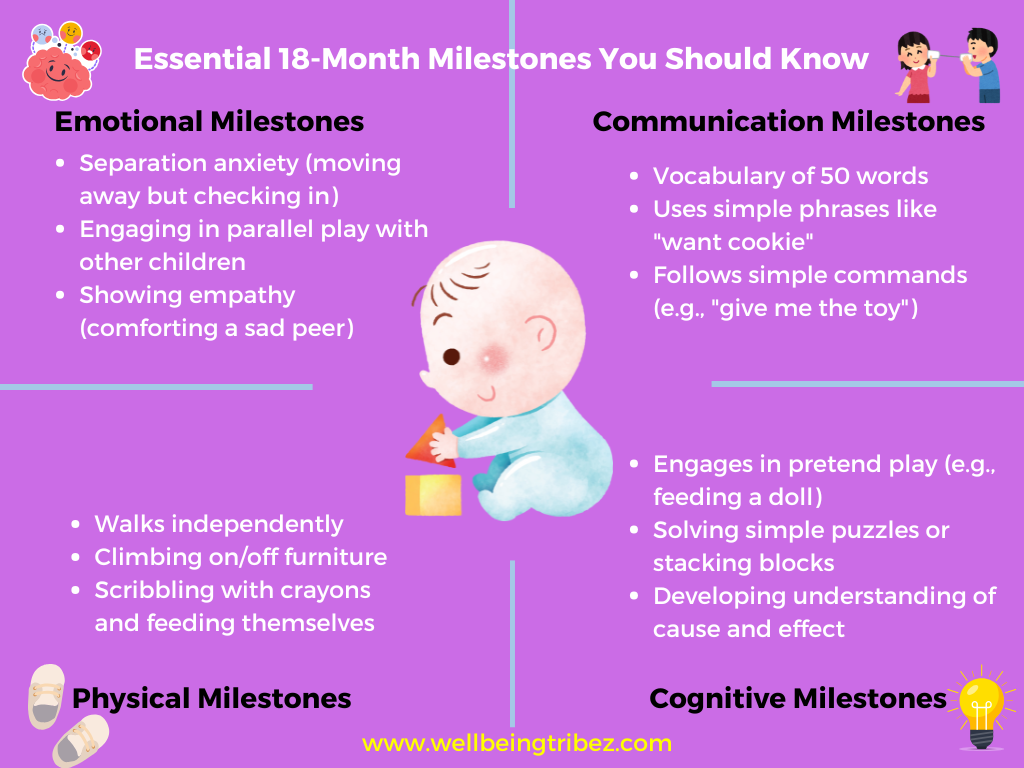As a parent or caregiver, tracking your child’s developmental milestones is important to ensure they are growing and progressing healthily. These milestones provide valuable insights into your child’s development, including their physical, emotional, and social growth.
From their ability to play and communicate to how they interact with others, each new skill they develop serves as a building block for future learning and social interactions. Understanding these milestones can also help you support your child in reaching their full potential.
In this article, we’ll discuss the key milestones of an 18-month-old, offering practical tips on encouraging and nurturing your child’s development during this exciting and crucial stage of their growth.
Table of Contents
What Are the Social and Emotional Milestones of an 18-Month-Old?
At 18 months, your child’s social and emotional development begins to take shape. They are becoming more independent while still seeking reassurance from you. It’s a critical stage where they start meaningfully expressing their emotions and interacting with others. Here’s what to expect:
- Moves away from you but looks back for reassurance: As your child explores the world, they will venture further from you but often check in to ensure you’re still nearby. This behaviour reflects growing independence, while still needing the comfort of familiar faces.
- Points to show you something interesting: Your child may start pointing at objects or people to share their discoveries with you, indicating curiosity and a desire for connection.
- Helps with dressing: At this stage, your little one might begin to assist in getting dressed by offering their arm for you to put through sleeves or lifting their feet for shoes. This shows growing participation in daily routines.
- Shows interest in other children and adults: Your 18-month-old might start engaging with others by smiling, making faces, or reacting to others’ emotions, a key foundation for social interactions in the years ahead. (UNICEF)
Real Life Case Study: Kim, a 17-month-old girl, was referred to an early intervention program due to failure to thrive associated with cardiac anomalies, encephalitis, spasticity (most likely cerebral palsy), and seizures. She was assessed using the Denver II Developmental Screening Test, which indicated developmental delays. Following parental consent, a home-based early intervention program was implemented, focusing on activity-based approaches. Over the course of the program, Kim demonstrated improvements in all developmental outcomes, including cognitive, socio-emotional, language, and motor skills. Her mother reported positive changes in Kim’s development and expressed satisfaction with the program’s impact. (Research Gate)
Read more: Important 18 Month Milestones to Track for Growth
What Are the Language and Communication Milestones of an 18-Month-Old?
Your child’s language development is another key area at 18 months. While every child is different, there are a few general milestones to look for. Keep in mind that these early skills are critical for future communication abilities.
- Attempts to say three or more words: By 18 months, many children start to use more than just “mama” or “dada” in their vocabulary. They may try to say simple words like “dog” or “ball,” which marks the beginning of verbal communication.
- Follows simple directions: Your child may be able to understand and follow simple commands without the need for gestures, such as “Give me the toy.” This shows the growth of both their language and cognitive understanding.
- Uses gestures: Your child might begin using simple gestures like waving goodbye or shaking their head to indicate “no,” demonstrating early forms of communication.
- Points to objects or people: By 18 months, children are often able to point to objects or people when asked, such as “Where is the dog?” This interaction helps develop a child’s ability to understand and communicate with others.

Real Life Case Study: Ada, an 18-month-old girl, was experiencing difficulties with sleep and emotional regulation. Her parents sought guidance from a sleep consultant to address these issues. The consultant recommended several strategies, including improving general sleep hygiene, implementing power naps to top up Ada’s sleep, adjusting bedtime to a later hour, and establishing a calm and nurturing bedtime routine. Additionally, the consultant suggested swapping the cot for a floor bed and providing emotional coaching during the day to help Ada manage tantrums and set boundaries. These interventions led to improvements in Ada’s sleep patterns and emotional regulation, enhancing her overall well-being. (Blissed Out Babies)
What Cognitive Milestones Should You Expect at 18 Months?
Cognitive development at 18 months is a fascinating time as your child starts to understand how the world works. From problem-solving to engaging in pretend play, here’s what you can expect:
- Imitates actions: Your 18-month-old might start copying what you do, such as sweeping with a broom or wiping the table. Imitative play helps your child understand cause and effect and begin to solve problems on their own.
- Plays with simple toys: Your little one may begin to engage with toys in ways that show they understand their function. For example, they might push a toy car across the floor or stack blocks, demonstrating early problem-solving skills.
- Explores cause-and-effect relationships: At this age, children start to grasp how actions lead to outcomes, like pressing a button on a toy to hear a sound. This curiosity is key for developing cognitive and motor skills.
What Are the Physical Development Milestones of an 18-Month-Old?
Physical milestones are often the most noticeable as children become more mobile and independent. Here’s what to expect in terms of physical development at 18 months:
- Walks independently: By 18 months, many children begin to walk on their own, although they may still be unsteady at times. Walking is a major physical milestone that marks the beginning of increased independence.
- Begins to scribble: At this stage, your child may start holding crayons or markers and scribbling on paper, which supports the development of fine motor skills.
- Drinks from a cup: Your child might be able to drink from a cup without a lid, although spills are still common. This skill is part of their growing independence and self-feeding abilities.
- Feeds themselves with fingers and begins to use a spoon: At 18 months, children typically feed themselves using their fingers, and some may begin using a spoon, although it’s often a messy process.
- Climbs onto furniture: Many children at this stage are physically confident enough to climb onto and off couches, chairs, or stairs with minimal help. This critical milestone reflects your child’s growing coordination and strength.
How Can I Support My 18-Month-Old’s Development?
As a parent or caregiver, you can incorporate many simple activities into your day to help your 18-month-old reach their milestones and support their growth.
- Encourage pretend play: Give your child a spoon and let them pretend to feed a doll or stuffed animal. Pretend play fosters creativity and language skills while strengthening cognitive development.
- Promote physical activity: Provide opportunities for your child to walk, climb, and explore in a safe environment. Physical play helps strengthen muscles and develop motor coordination.
- Model positive behaviours Use positive language and reactions to guide your child’s understanding of emotions. For example, if your child sees another upset, you might say, “He looks sad. Let’s bring him a teddy bear.”
- Read together: Start reading simple books with your child to boost language development. Point to pictures and talk about them to expand their vocabulary.
Real Life Case Studies: Logan, an 18-month-old boy in a toddler classroom, was observed engaging in self-exploratory behavior during diaper changes, which appeared to be self-stimulating. He would become upset when staff quickly finished cleaning him up, preventing him from continuing. This behavior was brief, and Logan would quickly move on to other activities. Program staff recognized this as a normal part of sexual development in toddlers and responded appropriately, ensuring Logan’s comfort and privacy. This case highlights the importance of understanding and appropriately responding to sexual development and behavior in young children. (Research Gate)
Read more: Essential Nutrition and Hydration Tips for Kids
When Should You Be Concerned About Your Child’s Development at 18 Months?
While every child develops at their own pace, some behaviours may indicate delays or issues that warrant further attention. Here are some signs to watch for:
- Lack of social engagement: If your child shows little interest in interacting with you, other children, or adults, it could be a sign of developmental delays.
- Limited language development: If your child hasn’t started saying any words other than “mama” or “dada,” it may be worth discussing with a paediatrician.
- Physical delays: If your child isn’t walking or attempting to walk by 18 months, it’s a good idea to consult a doctor to rule out any physical concerns.
- Loss of skills: If your child regresses and loses previously acquired skills, it’s essential to seek medical advice.
What Should You Discuss With Your Doctor Regarding 18-Month-Old Milestones?
If you have any concerns about your child’s development, it’s important to talk to your paediatrician. Here are some things to discuss:
- Developmental screening: Ask about developmental screenings to ensure your child is progressing as expected.
- Specialist referrals: If there are concerns about specific delays, your paediatrician might refer you to a specialist for further evaluation.
- Early intervention programs: In some cases, early intervention programs can provide additional support and resources to address any developmental delays.
At Wellbeing Tribez, we support families in every stage of their child’s growth. Our platform connects you with resources, expert guidance, and a community that understands the unique needs of Black families. Whether you’re seeking advice on child development or culturally relevant services, we are here to help.
Conclusion
Tracking the milestones of an 18-month-old can be both exciting and a little daunting for parents. Understanding these key milestones not only helps you track your child’s progress but also empowers you to support their growth with confidence.
Remember that early intervention is key if you have any concerns about your child’s development. At Wellbeing Tribez, we’re here to offer resources and a supportive community that helps families navigate this critical stage.
If you’re looking for more guidance or services tailored to your child’s needs, visit our platform to find expert resources and advice catering to Black families’ unique experiences.
GET IN TOUCH

